Complete implant treatment is a revolutionary solution for individuals with complete edentulism, involving the placement of 4, 6, or even 8 implants per arch to secure a durable bridge or prosthesis. This treatment not only restores the ability to chew and taste food like one would with natural teeth but also significantly enhances overall quality of life. Patients can expect a transformation in their oral function, coupled with improved aesthetics and self-confidence. Unlike traditional implant dentures, which can often be unstable, complete implant treatment offers the security of anchors directly in the jawbone. Furthermore, advances like All-on-4 implants allow for a more streamlined approach, making tooth replacement both efficient and effective.
When discussing complete implant treatment, terms such as full mouth reconstruction and implant-supported dentures come into play. This dental procedure is an exceptional option for those facing total tooth loss, as it involves strategically placing dental implants to support new teeth, ultimately restoring oral health and function. With cutting-edge techniques like All-on-4 implants, patients can enjoy a stable and permanent solution to their edentulous condition. Every aspect of this treatment is designed to maximize comfort and durability while preventing bone loss and improving facial aesthetics. Therefore, understanding the full benefits of this comprehensive tooth replacement strategy is essential for anyone considering edentulous treatment.
What is Complete Implant Treatment?
Complete implant treatment is a revolutionary procedure specifically designed for individuals who have lost all their teeth. This technique often involves placing four to eight dental implants in the jawbone, which serve as a stable foundation for a dental bridge or prosthesis. The goal of the treatment is not only to restore the functionality of the mouth but also to enhance the patient’s overall quality of life. This approach to tooth replacement is particularly beneficial for edentulous patients as it closely mimics the look and feel of natural teeth, providing security and comfort.
Additionally, complete implant treatment addresses crucial concerns such as jawbone deterioration, which typically occurs when natural teeth are lost. By simulating the root structure of a tooth, implants help to maintain bone density and integrity, which is essential for sustaining facial aesthetics. Patients can expect significant improvements in chewing function and speech, making this solution a comprehensive option for restoring oral health.
Advantages of Complete Implant Treatment
Complete implant treatment offers numerous advantages over traditional dentures and other tooth replacement solutions. One of the primary benefits is the prevention of bone loss, which occurs after tooth extraction. By placing implants that act like natural roots, bone resorption is minimized, allowing the patient to maintain a healthier jaw structure. This is particularly relevant for those who have experienced complete edentulism, as the absence of teeth can lead to significant changes in facial appearance and structure.
Moreover, implant teeth provide unmatched durability, often lasting over a decade with proper care. Unlike dentures that can shift and require adhesives, dental implants offer enhanced comfort and stability. This means patients can enjoy their favorite foods without the worry of their prosthetic teeth moving or causing discomfort. The improvement in quality of life through enhanced speech abilities and facial aesthetics is a crucial advantage, making complete implant treatment a preferred choice for many.
Is Complete Implant Treatment Suitable for Everyone?
While complete implant treatment is highly effective, it’s essential to determine if a patient is a suitable candidate for the procedure. Factors such as overall health, jawbone density, and the presence of any chronic conditions can affect eligibility. For instance, patients with certain bone diseases or those who have undergone radiation therapy might not be ideal candidates due to the potential risks involved during and after the surgery. A thorough medical evaluation is crucial to ensure safety and effectiveness before proceeding with the treatment.
Furthermore, individuals who smoke or have poor oral hygiene may face increased risks during the healing process. Dental health professionals often recommend preparatory treatments like bone grafting or sinus lifting to enhance the chances of successful implantation. The dentist’s role in assessing the suitability of complete implant treatment cannot be overstated, highlighting the importance of personalized care in achieving optimal results.
Choosing the Right Number of Implants
Determining the appropriate number of implants for complete edentulism is a vital step in the treatment planning process. Typically, dentists use All-on-4, All-on-6, or All-on-8 implants based on the patient’s unique jaw structure and medical history. All-on-4 implants offer a strategic solution with only four implants providing robust support for the entire dental arch. However, for patients with a lower jawbone density, opting for All-on-6 or even All-on-8 implants might be necessary to ensure stability and longevity of the prosthetic bridges.
The choice of implants not only influences the treatment outcome but also affects the overall cost of the procedure. Dentists utilize three-dimensional imaging to evaluate the most suitable approach for each patient, ensuring a high success rate. Ultimately, understanding the number of implants needed helps in creating a tailored treatment plan aimed at delivering the best possible results for patients facing complete tooth loss.
Treatment Duration for Complete Implant Treatment
The duration of complete implant treatment can vary significantly based on several factors, including the number of implants required, the patient’s jawbone health, and overall health status. On average, the entire process can take several months, as it includes the surgical placement of implants, healing time for osseointegration (where the implants fuse with the bone), and the final fitting of the dental prosthetics. Patients should be prepared for multiple appointments and a timeline that allows for proper healing.
Typically, after the initial consultation and implant placement, patients might need a few months for the bone to heal adequately before the dental arches can be added. This healing period is crucial for ensuring that the implants are securely anchored, which is why patience and adherence to the dentist’s post-operative care instructions are essential for a successful outcome.
Cost Considerations for Complete Implant Treatment
The cost of complete implant treatment can vary widely depending on various factors, such as the type of implants used (All-on-4, All-on-6, or All-on-8), the complexity of the case, and the geographic location of the dental practice. Patients should be aware that while this procedure represents a significant investment, it also provides long-term benefits in terms of quality of life and dental function. Unlike other dental solutions, implants typically require less adjustment and maintenance over time.
When consulting with a dentist, it’s important to discuss not only the upfront costs but also any potential financing options available. Many dental practices offer payment plans to help patients manage the costs associated with complete implant treatment. Understanding the investment involved can help patients make informed decisions about their oral health and the best options for tooth replacement.
Impact of Complete Implant Treatment on Daily Life
Undergoing complete implant treatment dramatically impacts a patient’s everyday life. After the restoration of missing teeth, individuals often experience a notable increase in confidence and self-esteem as they regain their smile. This psychological boost can positively affect their social interactions, career opportunities, and overall wellbeing. Patients no longer feel self-conscious about missing teeth and can engage more freely in conversations.
Additionally, the functional benefits of complete implant treatment can transform patients’ eating habits. With the stability provided by implants, individuals can enjoy a wider variety of foods without worry. This newfound ability to chew comfortably leads to improved nutrition and greater satisfaction with meals, contributing to a healthier lifestyle. Therefore, complete implant treatment not only addresses physical dental needs but also enhances emotional and social aspects of life.
Ongoing Care for Implant Patients
After receiving complete implants, the journey doesn’t end; ongoing care and maintenance are essential to ensure their longevity and function. Just like natural teeth, dental implants require regular brushing, flossing, and routine dental check-ups. Patients should ensure they maintain excellent oral hygiene habits to ward off infections and ensure the success of their implants. The right care will also help in preserving the surrounding bone, contributing to the overall health of the jaw.
Moreover, dental professionals may provide personalized care routines and recommend specific products or techniques tailored to implant maintenance. Following their advice can significantly impact the longevity of the implants and the overall health of the mouth. As implants are a long-term investment, commitment to ongoing dental care is crucial for achieving the best results.
Technological Advances in Implant Treatment
The field of complete implant treatment has seen significant technological advancements that enhance the treatment process and patient outcomes. Innovations such as 3D imaging and guided implant surgery allow dentists to visualize the jaw structure with precision, enabling the strategic placement of implants for optimal stability. These technologies improve accuracy and reduce the risk of complications during surgery.
Additionally, advancements in dental materials have led to stronger, more durable implants that mimic the properties of natural teeth even more closely. For instance, the use of biocompatible materials ensures better integration with the jawbone and enhances the success rate of implant procedures. Staying informed about these innovations can help patients make educated decisions about their treatment and understand the benefits of modern dentistry.
Frequently Asked Questions
What is complete implant treatment and how does it work?
Complete implant treatment involves placing 4, 6, or 8 dental implants into the jawbone to anchor a prosthetic bridge or dentures in completely edentulous mouths. This procedure restores chewing and speaking abilities, mimicking the function of natural teeth and helping prevent bone loss.
What are the benefits of complete implant treatment compared to traditional dentures?
Complete implant treatment offers numerous advantages over traditional dentures, including improved durability, enhanced chewing ability, better speech function, and increased comfort. Unlike dentures, dental implants are anchored securely in the jaw, eliminating the need for adhesives and providing a more natural feel.
Is complete implant treatment suitable for everyone?
Not everyone is a candidate for complete implant treatment. Factors such as bone density, overall health, and the presence of specific conditions like cancer or heart disease may influence eligibility. A thorough evaluation by a qualified dentist is necessary to determine if you can undergo this treatment.
How many implants are needed for complete implant treatment?
The number of dental implants needed for complete implant treatment varies by method: typically, 4, 6, or 8 implants are used to support a full bridge or denture. The choice depends on jawbone quality and patient requirements, which will be assessed by a dental professional.
How long does complete implant treatment take from start to finish?
The duration of complete implant treatment typically spans several months. This includes the healing period for the implants to integrate with the jawbone before the final prosthetic teeth are placed. Factors impacting the timeline include the patient’s health status and the specifics of their dental structure.
What is the cost of complete implant treatment like?
The cost of complete implant treatment varies based on several factors, including the number of implants (All-on-4, All-on-6, or All-on-8) and the patient’s individual jaw structure. A consultation with a dentist will provide a detailed estimate based on the specific treatment recommended.
Can complete implant treatment improve my facial appearance?
Yes, complete implant treatment can significantly enhance your facial appearance. By filling in gaps left by missing teeth, dental implants restore the natural contours of your face, leading to a healthier and more youthful smile.
How does complete implant treatment prevent bone loss?
Complete implant treatment helps prevent bone loss by mimicking the root structure of natural teeth. The dental implants stimulate the jawbone during normal chewing activities, which is essential for maintaining bone density and preventing degradation over time.
What are All-on-4 implants and how do they relate to complete implant treatment?
All-on-4 implants are a specific technique within complete implant treatment, where only four strategically placed implants support an entire arch of replacement teeth. This method is often used for patients with limited jawbone density and offers a faster and more economical solution to tooth replacement.
Are there any surgical risks associated with complete implant treatment?
As with any surgical procedure, complete implant treatment carries potential risks, such as infection, nerve damage, or complications with anesthesia. However, these risks are generally low, particularly in healthy patients. Consulting a qualified dentist can help mitigate these risks.
| Key Points | Description |
|---|---|
| Definition of Complete Implant Treatment | Procedure involving placement of 4, 6, or 8 implants per arch to support a bridge or prosthesis. |
| Importance | Essential for restoring function and aesthetics in completely edentulous mouths. |
| Advantages | Reduces bone loss, increases durability, restores chewing capability, improves speech, enhances comfort, and boosts facial aesthetics. |
| Considerations | Health conditions like cancer, heart disease, and bone diseases can preclude treatment. |
| Process Duration | The treatment usually spans several months, depending on individual cases and health status. |
| Cost Factors | Cost varies based on jaw structure, number of implants, and treatment type (All-on-4, All-on-6, All-on-8). |
Summary
Complete implant treatment is a highly effective method for restoring functionality and aesthetics in individuals who are completely toothless. This advanced procedure promises benefits such as improved chewing capacity and speech, while also preventing bone loss and enhancing facial appearance. With a variety of implant options available, including All-on-4, All-on-6, and All-on-8, patients can find a suitable solution tailored to their specific needs. Though the treatment process may take several months and involves financial considerations, the long-term advantages and high satisfaction rates make complete implant treatment a worthwhile investment in one’s oral health.


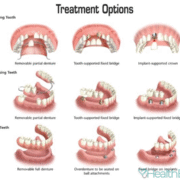
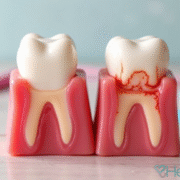
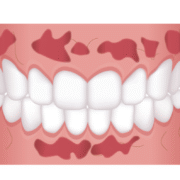
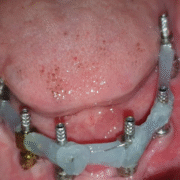
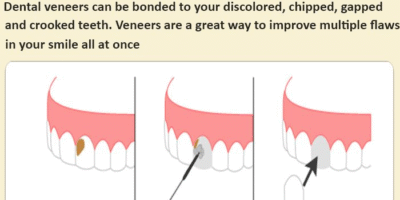
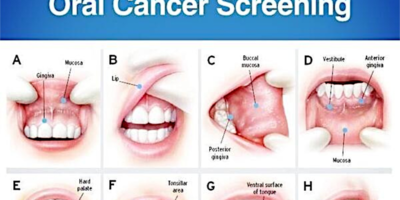

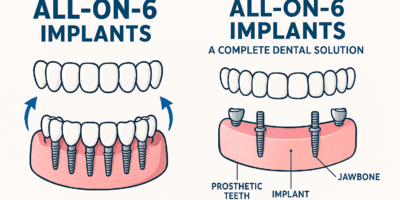
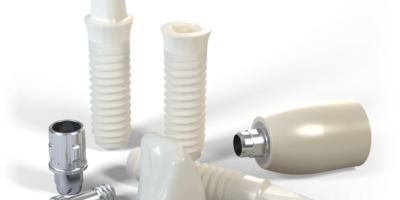




Comments